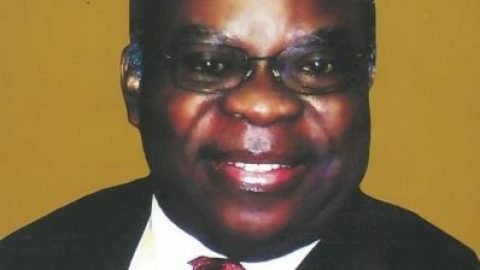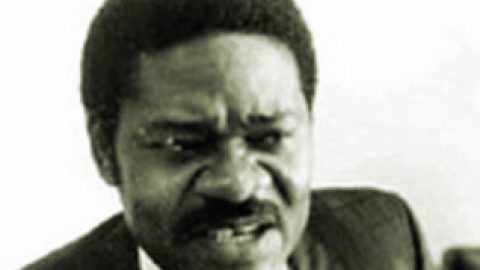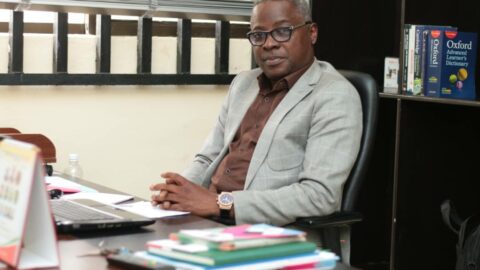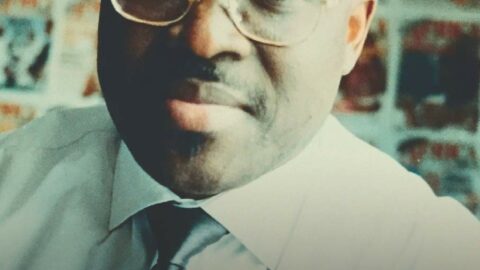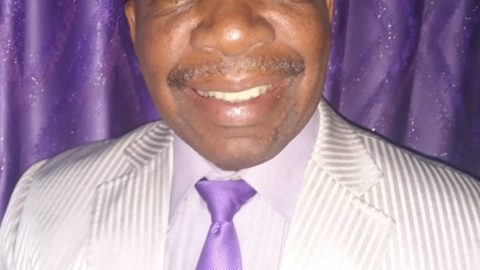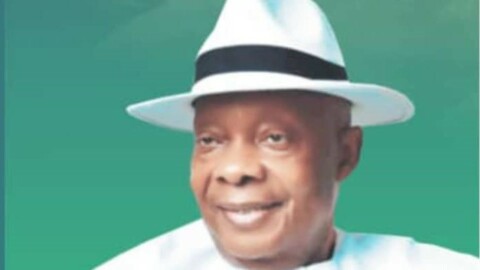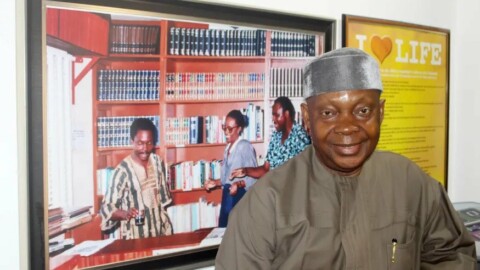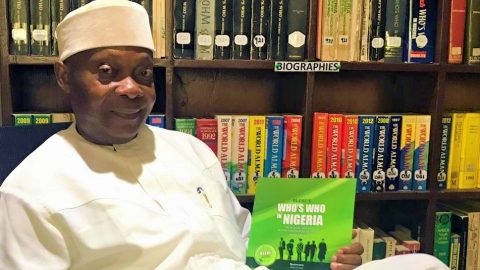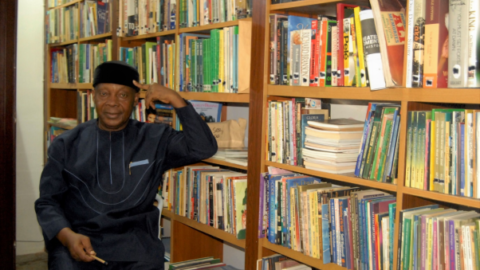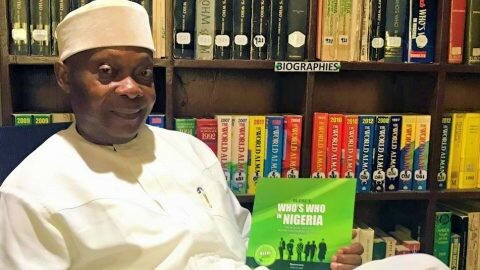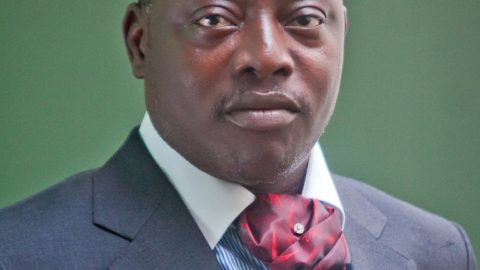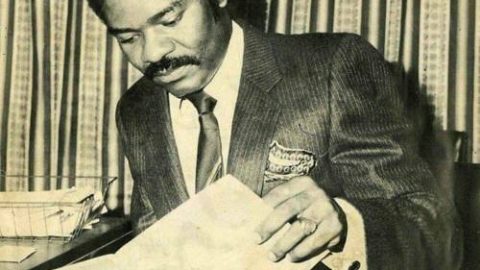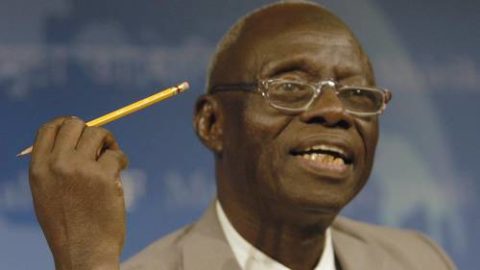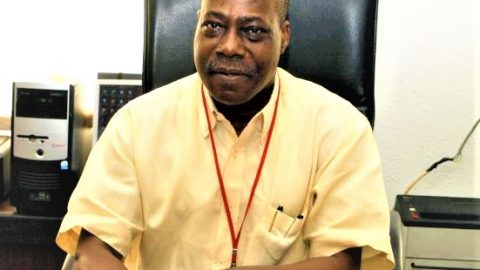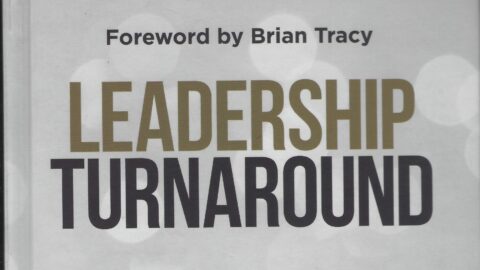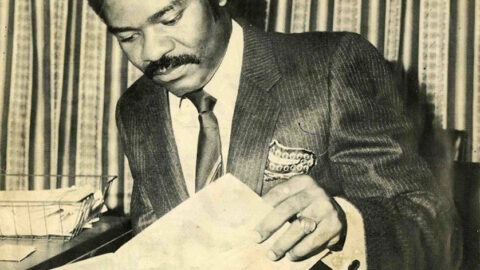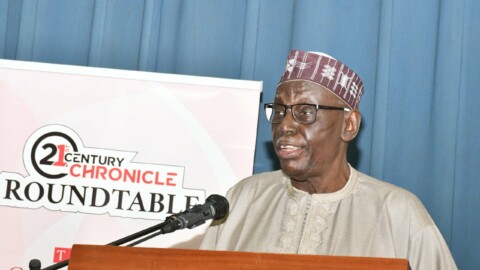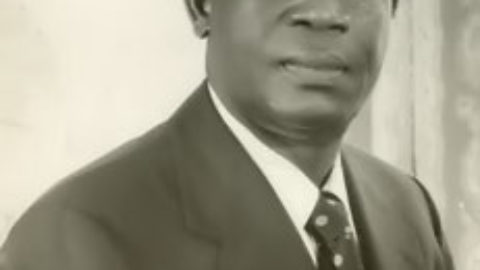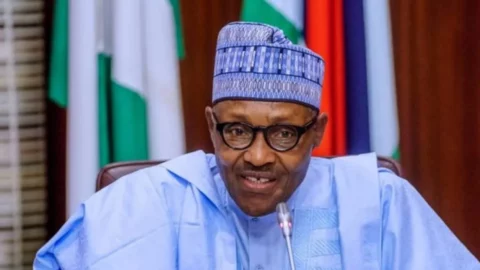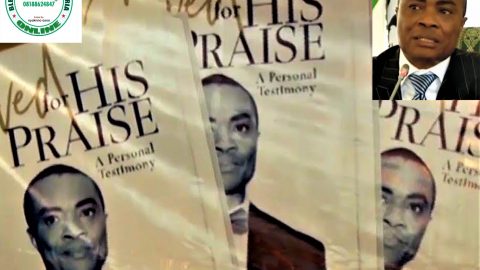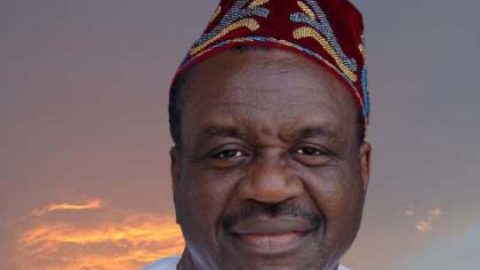One of the customs guys going through my handbag (at the Murtala Muhammed International Airport) asked me if I had something for him. I told him I did. I offered him about 75k. He whistled and looked at my face scornfully. Said he was bigger than that nonsense. Thanks indeed, I told him.
It was on April 9,1979, to be precise, when the KLM DC 10 swooped into the International Airport Ikeja on a flight from Amsterdam in Holland and began to taxi after landing so, so gently in what was a leisurely and caressingly galloping drive in the huge McDonnell-Douglas bird to the new International Airport named for the late Murtala Muhammed.
The air-conditioning in the duct – is that what it is called, the enclosure leading from the aircraft into the main terminal building? – must have pooped, for the heat that hit me on the face said that I was back in sweet old mother Africa. But entering the main terminal was a thing of beauty, not because of the spanking newness and cleanness of the airport. Had it not been for the blast of tropical heat of a few moments earlier, the tendency was for me to think that I was in a kind of dream.
This may sound trivial ever so much to those who didn’t have the ill fortune of travelling through the old Ikeja Airport. Well, I did, on August 14, 1978, a Friday and the scene at the departure lounge was worse than anything that ever took place at Jankara Market. This is no exaggeration.
It would be nice to say I had to get an all-knowing tout who took a tip. But the truth was that the guy skinned me to help me through checking in, paying airport tax, checking the contents of my luggage, and a million other things that I took for granted in other countries. It was a Friday and three airlines were taking off and because, too.
It was the high point of the government’s war against international illegal trafficking in naira. One of the customs guys going through my handbag and camera case asked me if I had something for him. I told him I did. Offered him about 75 kobo.
He whistled looked at my face scornfully. Said he was bigger than that nonsense. Thanks indeed, I told him. Anyway, that was the told airport and it was a jungle compared with the beautiful edifice I was striding through that late afternoon of April 9, 1979. One didn’t even have to walk if he didn’t want to, the conveyor thing was working, and ahead, the escalators, too, were working. The first snag occurred with the first human at the airport.
Unlike in the United States, or Holland, or Canada, or Germany, or Britain where passengers are told to line up on different windows marked “citizens,” “Aliens,” “EEC members,” and soon, the Nigerian airport had so special window for “Nigerians.”
They just lumped different nationals together. That in itself could have been sufferable, but for an incident. More half of the arriving passengers on that KLM flight were white. Here in Lagos, a Nigerian was waiting for a particular European. The moment we got to the place where they were checking passports and inoculation certificates, the Nigerian pulled his European friend aside and collected his papers.
Meanwhile, other passengers submitted their papers to sleepy-eyed officials who were slow and lackadaisical in their working manners. The process itself, at that time, was so silly that I couldn’t laugh or yell. It was hard to know which officials were checking passports and which were checking inoculation certificates. And it took so long.
However, in under five minutes the white man who gave his paper to his Nigerian friend was called to pick his passport. I queried that. I told the official that he couldn’t do that because the man was from him. The fellow looked at me through doleful eyes and asked me my name.
I told him. He went through the passport in front of him, took out the passport and announced through swollen lips that he would make sure that I was the last of all the passengers to get back my passport. I told him that he must be kidding. I told him that I wanted to see his supervisor. He laughed, called out to his colleagues and told them that “this JJC say he can see my supervisor,” he ignored me. I held his hand. Then he realized he had a problem.
Things got a little nasty. Others who worked at the countries tried to intervene, judged the man right and me wrong. I told them I disagreed and that since this was my country, the man couldn’t possible get away with what he had just done. One of the guys got really smart, took the passports away from the guy I had arrested and began to treat the other travelers. I got really angry.
I left him to find a kind superior officer. The gentleman I found, a senior customs official by the name of Mr. Njoku, came over with me and asked the man what happened. The man lied and lied to Mr. Njoku who wanted to settle the whole thing by appeasing me and letting the guy continue his with work. That was unsatisfactory as far as I was concerned.
I thought the least he could do was to tell the guy that he was wrong. Because I raised these questions, Mr. Njoku decided that I was cantankerous and we began to argue. He said I disappointed him because something loftier. I told him that he disappointed me because I expected him to forthright in his decision, and that, in any case, I didn’t care if I disappointed him.
While we were arguing back and forth, the errant clerk looked up with a certain kind of recognition. He told everyone nearby that was Dele Giwa, the man with the golden fleece. He told them that I worked for Daily Times (that time, no, I joined Daily Times the following day), adding that if linked, I could write about him. A
ll this happened on April 9, a Monday, and just the previous day, Sunday Times ran a centrespread article that Tunji Oseni headlined “Golden Fleece …”
The passport or whatever guy was referring to that article. I had to laugh and everybody thought I was mad. “What a welcome after eight years in America,” I laugh to myself. I promised my friend, however, that one day I would write about him. But I lost his name. Anyway, he would know himself.
Written by Dele Giwa and Published in Daily Times, January 2, 1980


